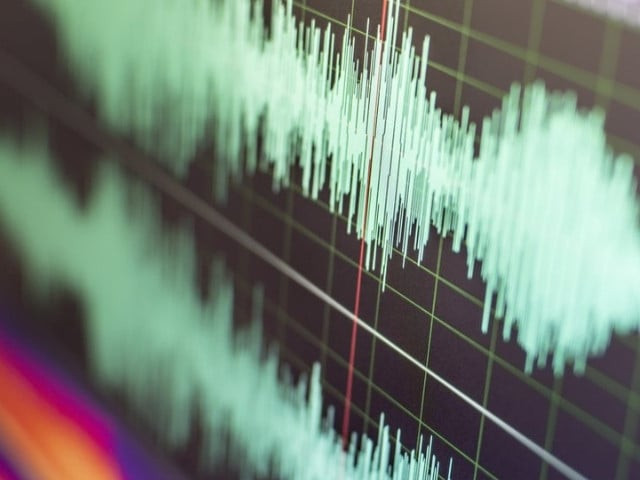Will audio leaks lead to reforms in judiciary?
Elahi-lawyers and Yasmin-Dogar purported audios raise several questions

From the audio leaks of the prime minister to a sitting judge of the Supreme Court and from the highest political office-holders to prominent politicians, the audio leaks have somehow become a permanent feature of the political discourse without any concrete effort being made to bring those behind them to book.
Anonymous sources are continuously leaking secret conversations that have simultaneously been exposing the hidden fears being expressed in the closed circles and how the powerful people and institutions become part of political and non-political projects for various reasons.
Soon after the Prime Minister House’s audio leaks, Premier Shehbaz Sharif had constituted a high-powered committee in September last year to investigate the issue and give recommendations but no progress has been made so far.
Months after the leaked audio recording of the PM House, the leaked conversations have frequently started resurfacing again.
In the recent viral audio tapes, PML-Q leader Pervaiz Elahi is purportedly heard asking his lawyers to fix a corruption case before a particular judge of the apex court.
A new audio clip purportedly feature PTI leader Yasmin Rashid and Lahore Capital City Police Officer (CCPO) Ghulam Mahmood Dogar, discussing his reinstatement from apex court, PTI Chairman Imran Khan’s concerns and if the night would peacefully pass amid rumours of Imran’s arrest. Following the leak, Imran and Yasmin urged the top court to take notice of it.
Political analyst Zaigham Khan said, “The audio leaks are damaging to a very important institution, which is the higher judiciary.”
When such leaks surface, the expert said, the legitimacy of one of the pillars of the state comes at stake.
Fearing that the higher courts’ credibility would erode, Zaigham pointed out the legitimacy, efficiency, capacity and impartiality of the courts was already in question.
For him, one positive aspect of the audio leaks was that the hidden realities had started to surface in the public.
“The leaks have exposed the way higher judiciary had [allegedly] become a part of the politics and different projects,” Zaigham said, adding now they were being called into question and they would face pressure from the public, politicians and analysts and “they will have to reform themselves”.
From dodging the elected houses to the institutions tasked to do the scrutiny, he said, the judiciary was continuously resisting reforms and refusing to provide information even under the access to information law, “which is a blatant violation of the basic concept of governance”.
Because of the leaks, he felt, some space would be created for reforms. He said that the people and the elected houses should show some courage now for bringing reforms in the judiciary.
Zaigham recalled that the judicial activism started after former chief justice Iftikhar Muhammad Chaudhry was reinstated. He said that he had forced the then parliament to bring the 19th Constitutional Amendment. As a result of the amendment, he added, “a self-selecting judiciary” came into existence.
It was self-perpetuating; there was no external scrutiny of judiciary; it constituted benches on its own; and it was free from any kind of accountability, Zaigham said.
He believed that the system of judiciary in Pakistan was quite different from other countries. “Neither is there scrutiny of judiciary by the elected houses nor any democratic accountability of the process of selecting judges,” he added.
All over the world, Zaigham said, judges of higher judiciary could be impeached by the elected houses. “The time has come to review the 19th Amendment, reform the judiciary and go back to the things agreed upon in the Charter of Democracy,” he emphasised.
“Pakistan needs a separate constitutional court, which should be a bit different from the appellate court,” he said, fearing that the edifice of the state was in danger otherwise.
Dr Rasul Bakhsh Rais, professor of political science at LUMS, said that everybody knew who was behind the leaks but nobody dared to talk about those who could do it.
The professor said that they tape the secret conversations of politicians, among others, and publicise them, “which was a sad reflection of the state of Pakistan and its institutions today”.
The history shows that states got destroyed because some people used state institutions for their own political interests, Prof Rais said, adding that when they keep doing it as it happens to be the case in Pakistan, it undermines the credibility of the institutions, their autonomy and constitutional status and more importantly, peoples’ faith in them.
“Yes, we know who these people are; who is behind these video [and audio] leaks; but sadly we can’t talk about,” the professor said. But at the same time, he added, “we are delighted that the people are aware of it; the whole world is watching; and those who are doing it have become the butt of joke in the world of academia, diplomatic community and foreign powers”.
Though audio leaks breached privacy, they provided adequate ammunition to the political parties for rallies; stirred controversy in the mainstream media and armed the social media armies to the teeth to fight on behalf of the parties that they impulsively supported.
Several efforts were made to contact interior and information ministers but they couldn’t be reached.












1724319076-0/Untitled-design-(5)1724319076-0-208x130.webp)






COMMENTS
Comments are moderated and generally will be posted if they are on-topic and not abusive.
For more information, please see our Comments FAQ